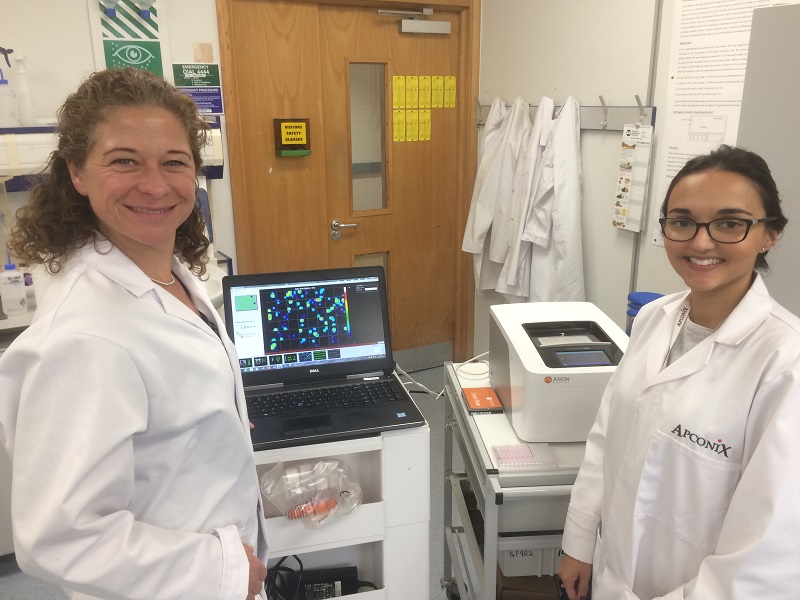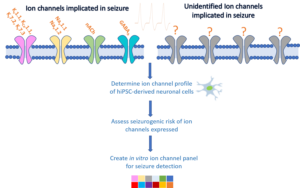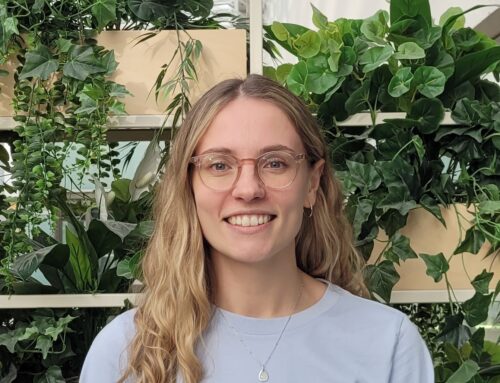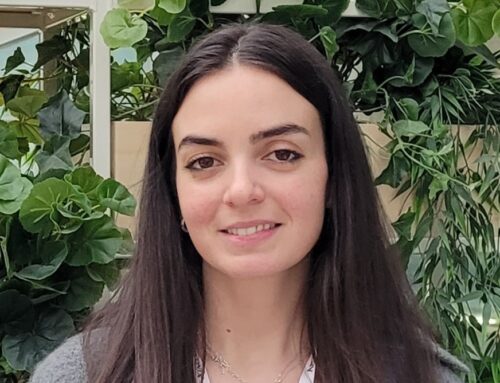ApconiX Conduct Pilot Study with Axion Biosystems

We were thrilled to welcome Jayne Ingram from Axion Biosystems into the ApconiX laboratory to conduct a pilot study using their Maestro Pro microelectrode array (MEA) system and Ncardia iPSC-derived neuronal cells. The cells were cultured for three weeks before Jayne arrived to allow the formation of neuronal networks, which would allow us to assess neuronal firing on the Axion MEA system in response to drug addition.
The pilot study was conducted in preparation for a larger program of study in the exciting area of seizure liability. This research will use the Axion MEA system to tease out the ion channels implicated in seizure and culminate in the creation of an ion channel panel for earlier detection of seizure liability. This is an important piece of research as toxicity to the central nervous system, including seizures, are the most frequent cause of safety failure in the clinical phase of drug development. Akin to the success of screening against a panel of ion channels such as hERG to reduce cardiovascular safety, successful implementation of an ion channel seizure panel would provide a rapid and reliable method for in vitro detection of seizure.
Back to the pilot study… Initially baseline readings were taken which provide a readout of the spontaneous electrical activity of the cells. Following this, drugs with a known seizure risk were added to determine if seizurogenic signals could be detected. We were also keen to see if the addition of an anti-epileptic drug could decrease both the spontaneous electrical activity and induced seizurogenic activity. The data is currently being analysed by the experts at Axion and we are very excited to find out the results!
Thank you to Axion Biosystems for providing the MEA system for the pilot study and for giving us technical advice and help along the way. We would also like to thank Ncardia for supplying the CNS.4U cells and for their helpful advice on culturing techniques.






